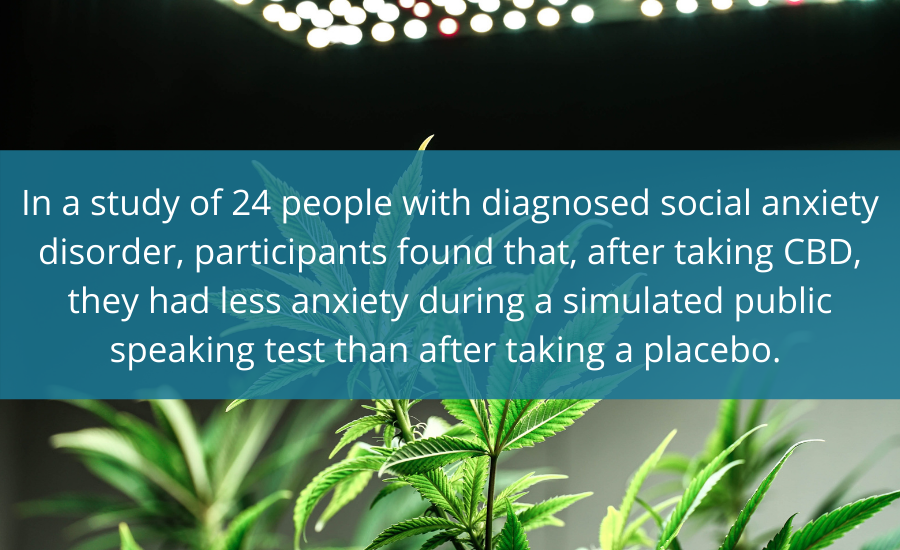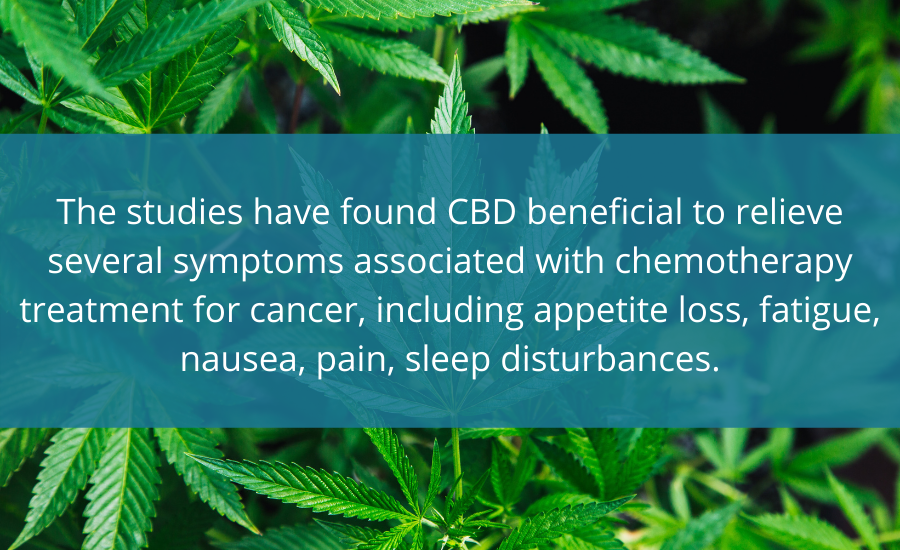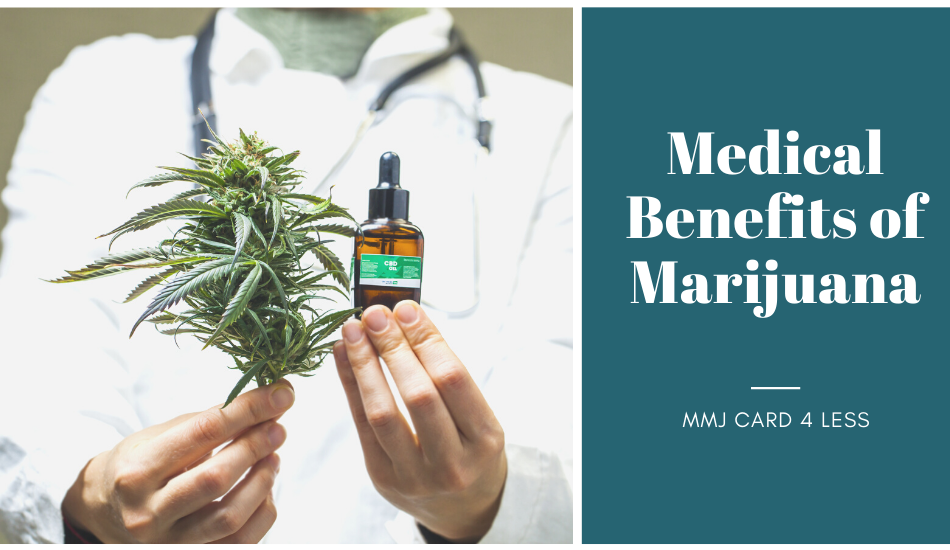Short answer: The studies have validated the benefits of using marijuana for a variety of reasons, from alleviating anxiety and depression to treating chronic pain and gastrointestinal disorders
The cannabis plant contains more than 540 different chemical substances, more than 100 of which are known as cannabinoids. Many of these contain properties with potentially therapeutic effects on the human body. Studies over the years have explored these effects and reported on the potential medical and pharmacological benefits of marijuana.
Many of these studies have repeatedly validated long-held beliefs and widely-cited anecdotal evidence of using marijuana therapeutically for a variety of reasons, from alleviating anxiety to chronic pain. Below are some of the most commonly studied potential benefits of medical marijuana and the current research that exists on them.
Relieving Chronic Pain
A 2015 study of over 2,400 participants found those taking cannabinoids experienced general improvements in pain measures, though in most of the studies the improvements were not statistically significant. Still, the proportion of participants taking cannabinoids who reported their pain reduced by at least 30 percent was greater than the proportion of those taking a placebo.
In 2018, a research review of 47 different studies comprising over 4,700 participants experiencing chronic pain other than cancer-related pain found evidence of a minor benefit from cannabis in alleviating that pain. Of those participants, 29 percent experienced their pain reduced by 30 percent, while only 26 percent of participants taking a placebo cited the same effects.
Another research review conducted that same year, this time of 16 studies, examined the potential effects of cannabis-based medications for pain from neuropathy, most particularly the THC and CBD-based mouth spray nabiximols (aka Sativex.) Across these studies, researchers found low-to-moderate evidence of better improvements in pain measures from those taking a cannabis-based medication than from those taking a placebo.
Read also: Can Chronic Pain Be a Qualifying Condition for Medical Card Ohio?
Lowering Blood Pressure
In a 2017 JCI Insight study, a single dose of cannabidiol (CBD) lowered the blood pressure in healthy human volunteer participants. This included lowering their resting blood pressure and their blood pressure following stress.
Reducing Inflammation
In a Rockefeller Institute of Medical Research study, CBD suppressed inflammation in the nerve receptors associated with chronic pain from neuropathy.
Preventing Addiction Relapse
In 2018, a preclinical trial in rats published in Neuropsychopharmacology found that CBD reduced symptoms associated in humans addicted to drugs and alcohol with a relapse during periods of withdrawal or abstention. These included:
- Craving induced by drug contexts
- Elevated anxiety
- Impaired impulse control
- Susceptibility to stress
Opioid Addiction
Cannabinoids have also been studied for their use in helping people decrease their use of opioids. Several studies in animals have yielded evidence that, instead of taking opioids alone for pain, taking THC with a smaller dose of opioids could be just as effective.
In a 2017 review of studies on human participants, chronic pain sufferers received cannabinoids along with opioid in a similar effort to determine whether the cannabinoids could help reduce the dosage of opioids needed to control their pain. Of nine studies reviewed, three were considered of high-quality design, and of these, none yielded consistent results.
Researchers have also examined statistical evidence from states that have passed medical marijuana legislation to determine whether data related to opioid use or harm associated with opioid use has changed since those states have instituted medical marijuana legalization. While the results have been inconclusive, there have been some interesting findings:
- In states with legal medical marijuana, there were lower opioid prescription rates, as well as lower prescription rates for all drugs for which medical marijuana could provide a medically or therapeutically viable alternative for patients on Medicare. In a national survey, however, nonusers of medical marijuana were less likely to report taking prescription drugs.
- An analysis of over a decade’s worth of data, from 1999 through 2010, found lower death rates from opioid medication overdoses in states with legal medical marijuana. When extended through 2017, however, that same analysis revealed a higher death rate from opioid overdoses.
- A review of data collected between 2004 and 2014 revealed no link between the passage of medical marijuana laws and any reduction in non-medical prescription opioid use, suggesting people weren’t apparently substituting medical marijuana for prescription opioids.
Read also: How To Renew My Medical Card in Ohio?
Treating Anxiety Disorders
In a study of 24 people with diagnosed social anxiety disorder, participants found that, after taking CBD, they had less anxiety during a simulated public speaking test than after taking a placebo. An additional four studies have implied that cannabinoids could help reduce anxiety in people experiencing chronic pain, though none of the participants in these studies had any diagnosed anxiety disorders.
In a 2015 preclinical study in Neurotherapeutics, this most common use of medical marijuana was validated across a broad spectrum of experimental, epidemiological and clinical research for an equally broad spectrum of uses. In this research review, CBD was found effective against anxiety disorders including:
- Generalized anxiety disorder
- Panic disorder
- Social anxiety disorder
- Obsessive–compulsive disorder
- Post-traumatic stress disorder

Read more: Can you get a medical marijuana card for anxiety?
Treating Gastrointestinal Disorders
A 2020 study on non-psychoactive cannabinoids for gastrointestinal disorders found they were beneficial in helping to treat and prevent conditions of the GI tract including:
- IBS (irritable bowel syndrome)
- IBD (inflammatory bowel disease)
- Crohn’s disease
- Ulcerative colitis
The anti-inflammatory properties of CBD were also found particularly instrumental to the cannabinoid’s ability to alleviate and avoid symptoms.
Multiple Sclerosis
MS has been the subject of several studies involving a variety of cannabis-based preparations, including cannabis extract, dronabinol, nabilone and Sativex. A review of 17 studies covering over 3,000 participants found small improvements in pain and bladder concerns in MS patients, while a review of six placebo-controlled trials involving over 1,100 participants found improvements in spasticity measures associated with MS. Further studies on Sativex, or nabiximols, in particular, found it effective in reducing MS-related spasticity by at least 30 percent within about three weeks.
Preventing Seizures
One of the most widely studied and scientifically confirmed uses of medical marijuana is to prevent seizures in people prone to having seizures, either from epilepsy or non-epileptic seizure syndromes. In one 2020 study on cannabinoids and epilepsy, CBD was shown to help reduce both seizure frequency and symptoms.
The FDA has approved a drug known as Epidiolex for the treatment of seizures associated with Dravet syndrome or Lennox-Gastaut syndrome, both rare forms of the condition known as Epileptic encephalopathies. These are a collection of seizure disorders that begin in childhood and involve frequent seizures and other several cognitive development impairments. Epidiolex is a synthetic form of THC containing a purified version of CBD.
Movement Disorders From Tourette’s Syndrome
In 2015, a review of two small studies revealed that synthetic THC may reduce the severity of movement disorders, or tics, in people with Tourette’s syndrome.
Fighting Cancer
Limited research has found CBD beneficial for relieve several symptoms associated with chemotherapy treatment for cancer, including:
- Appetite Loss
- Fatigue
- Nausea
- Pain
- Sleep Disturbances
The CDC acknowledges the benefits of certain cannabinoids for alleviating nausea and vomiting induced by cancer chemotherapy treatment. Currently, the U.S Food and Drug Administration (FDA) has even approved two synthetic forms of certain cannabinoids for use for these purposes:
- Dronabinol (aka Marinol and Syndros) containing synthetic THC
- Nabilone (aka Cesamet) containing a synthetic substance similar to THC
In addition, a 2016 study found CBD able to help induce apoptosis, or cell death, and prevent or inhibit cell growth in cell lines of cervical cancer.
There are a number of other promising CBD cancer benefits as well, including to benefit the immune system, treat tumors and prevent certain cancers like:
- Brain cancer
- Colon cancer
- Lung cancer
- Prostate cancer
- Skin cancer
CBD also plays a pivotal role in functions that ultimately block cancer in general from initiating, progressing and metastasizing.
Combatting Appetite Loss Associated With HIV/AIDS
Loss of appetite and the resulting unintentional weight loss is one of the most common and critical problems people with HIV/AIDS face. Based on a study of over 130 participants, the FDA approved dronabinol in 1992 to treat appetite loss associated with weight loss in HIV/AIDS patients. Limited other studies on smaller groups of people over smaller lengths of time and with potentially biased results have also been conducted.
Relieving Glaucoma Pressure
Reducing pressure in the eye associated with glaucoma can both relieve pain associated with the disease and slow the progression of the disease. In the 1970s and ’80s, several studies found that cannabis and its derivatives could reduce pressure in the eyes caused by glaucoma, but only for a short time and not as effectively as other treatments already in use.
Read more: The full list of qualifying conditions for getting a medical card in Ohio.
For various ailments, medical marijuana can be beneficial to your body. In order not to self-medicate, make an appointment online with one of our specialists. You will be able to discuss your diagnosis, find out if you qualify for a medical card, and apply for one – all as quickly and conveniently as possible.

